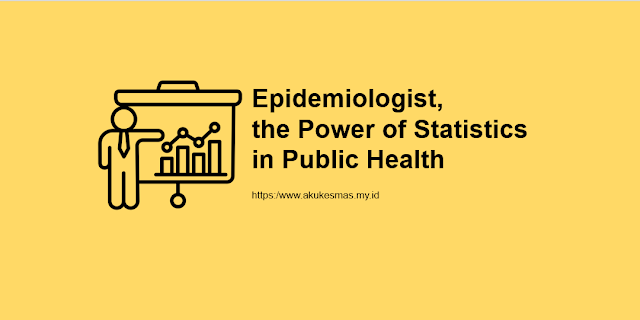Epidemiologist, the Power of Statistics in Public Health
Epidemiologist, the Power of Statistics in Public Health
In the realm of public health, a group of unsung heroes plays a vital role in safeguarding our well-being by utilizing the power of statistics. These unsung heroes are epidemiologist, who use their expertise in data analysis and statistics to improve our overall health. In this blog article, we will delve into the fascinating world of epidemiology, exploring how these experts leverage statistics to enhance public health outcomes.
 |
| These unsung heroes are epidemiologist, who use their expertise in data analysis and statistics to improve our overall health. |
1. Understanding Public Health and Epidemiology:
akukesmas friends, Before we dive into the role of statistics, let us first grasp the concept of public health and epidemiology. Public health refers to the science and art of preventing diseases, promoting health, and extending life expectancy within communities. Epidemiology, on the other hand, is the study of the distribution and determinants of health-related events in populations and the application of this knowledge to control health problems.
2. The Importance of Data in Public Health:
At the core of epidemiology lies the collection and analysis of data to gain valuable insights into public health issues. Epidemiologists rely on various sources, such as surveys, medical records, and national databases, to gather data about diseases, risk factors, and health behaviors. This extensive pool of data provides a foundation for their statistical analyses and subsequent public health interventions.
3. Statistical Tools and Techniques in Epidemiology:
Epidemiologists utilize a wide array of statistical tools and techniques to interpret data and draw meaningful conclusions. They employ descriptive statistics to summarize and present information about disease prevalence, incidence rates, and demographic distributions. Additionally, inferential statistics allow them to make predictions and generalizations about populations based on sample data and test hypotheses regarding the relationship between risk factors and health outcomes.
4. The Role of Epidemiologist in Public Health:
Epidemiologists play a pivotal role in identifying and understanding disease patterns within populations. By analyzing data through statistical models, they can uncover trends, risk factors, and associations that shape public health policies and interventions. Whether it's tracking the spread of infectious diseases, estimating the impact of environmental factors on health, or identifying disparities in healthcare access, epidemiologists employ statistics to inform evidence-based decision-making.
5. Applied Epidemiology and Outbreak Investigations:
During outbreaks of infectious diseases, epidemiologists work diligently to detect and contain the spread of the illness. By using statistical methods, they can estimate the reproduction rate of the disease, identify the source of the outbreak, and evaluate the effectiveness of control measures. Their work includes contact tracing, determining attack rates, and conducting case-control studies, all of which depend on statistical analysis to inform public health strategies.
6. Fighting Health Disparities with Data:
Epidemiologists are at the forefront of tackling health disparities that disproportionately affect marginalized communities. By analyzing population-level data, they can identify social determinants of health, such as income, education, and access to healthcare, contributing to health inequalities. Armed with statistical evidence, epidemiologists advocate for policy changes and interventions aimed at reducing these disparities.
Conclusion
Epidemiologists are the unsung heroes who utilize the power of statistics to improve public health outcomes. By analyzing data, applying statistical techniques, and interpreting findings, these experts inform evidence-based practices and interventions that protect and enhance the health of communities. Their work serves as a reminder of the crucial role statistics play in shaping public health policies and strategies to create a healthier
